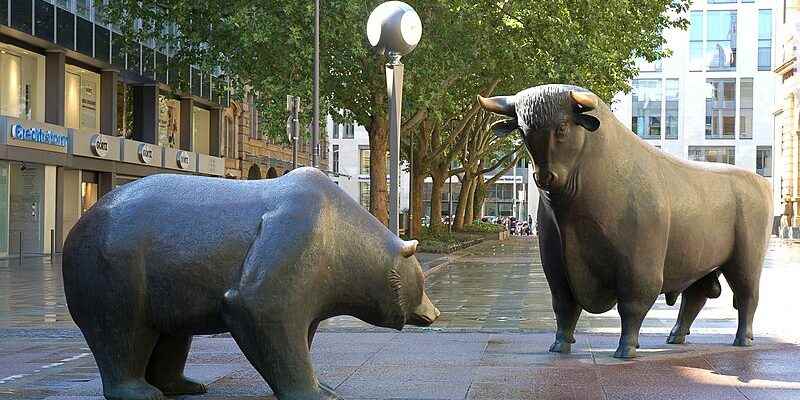(BFM Bourse) – CMC Markets carried out a study based on research carried out on Google. ETF comes first, followed by IPO and broker.
Who hasn’t “Googled” an unfamiliar financial term? With the proliferation of products and expressions, especially on stock market forums, even the most seasoned investors are not necessarily omniscient.
“It is not surprising that many people are confused by the terminology of financial markets. As market professionals, we must regularly get used to new acronyms, and this before taking into account those that are regularly used” , explains Michael Hewson, market analyst at CMC Markets.
CMC Markets has precisely tried to identify the terms that raise the most questions for French Internet users, based on Google searches via the SEO tool (“search engine optimization”) Ahrefs . Here is the ranking.
1/ ETF – 103,000 average monthly searches
ETF is an acronym which means “exchange traded fund” or index fund in the language of Molière. These are listed funds which replicate the performance of a given index (or of a particular asset such as gold for example) and are therefore more diversified and less volatile than a share.
2/ IPO – 95,000 searches per month
“Initial Public Offering” is simply an IPO, when an unlisted company enters the market by selling shares.
3/ Broker – 46,000 searches per month
This is the English term for “broker”, an individual or a company that acts as an intermediary between an investor and a market. “It facilitates transactions between individuals or businesses and can provide investors with research, investment plans and market information,” CMC Markets points out.
4/Arbitrage -23,000 searches per month
Slightly more complex, an arbitrage is a financial operation which makes it possible to ensure a gain by playing on very temporary price differences on a given asset, via an almost simultaneous purchase and sale.
“For example, for stocks, arbitrage can take place when a stock is listed on stock exchanges in two different countries. Due to the difference in exchange rates for each country, the price of the stock varies by one stock market to another,” says IG.com. “Therefore, by selling a stock on one exchange and buying it on another, an investor can make an immediate profit by taking advantage of the price difference,” the broker continues.
5/ ADR – 22,000 searches
ADR is the acronym for “American Deposit Receipts”, which is translated as “certificat de dépôt” in good French. These are securities listed on Wall Street that allow investment in non-US companies. In France, DBV Technologies and TotalEnergies, for example, have an ADR in New York, in addition to their direct listing on the Paris Stock Exchange.
6/ Bear Market – 11,000 searches
The “bear market” is a bear market, the word “bear” referring to the bear (bear in English) because this animal to attack performs a claw, or a downward movement. Note that this explanation sometimes varies. “The term is believed to have originated with pioneer traders in bear pelts. As traders hoped to buy fur from trappers at a lower price than they had sold it for, the term ‘bear’ became associated with a market in decline” advances from his side CMC Markets.
Technically a “bear market” occurs when an index loses 20% from its most recent peak. But there is actually no precise definition.
7/ Bull Market – 7,600 searches
The opposite of the “bear market”, the term “bull” refers to the bull whose rising charge to defend itself is reminiscent of an upward movement in the market. We generally speak of a “bull market” when an asset or a market increases by 20% compared to its last low. But again, there is actually no precise definition.
8/ To the Moon – 4,900 searches
“To the moon”. This expression is widely used by crypto-investors, who by its use hope for a surge in the cryptocurrency in question.
9/ Dividend Yield -3,900 searches
This is in English the dividend yield. A ratio that is obtained by relating the dividend per share paid by a company to its stock market price.
10/ Dead Cat Bounce – 3,200 searches
Ah, the “dead cat bounce”… This colorful term refers to a temporary burst of action after a strong fall. “Even a dead cat will rebound if it falls from a great height,” the saying goes on Wall Street. “The dead cat bounce now applies to any instance where a brief resurgence follows a sharp decline,” says CMC Markets. But obviously this rebound is only temporary, before a new fall.
Julien Marion – ©2022 BFM Bourse
